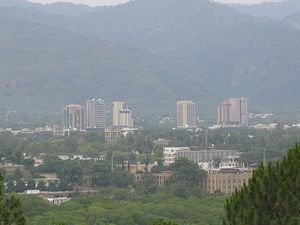The government in Pakistan is gearing up to hold the country’s first population census in almost two decades. According to the available information, the census is likely to begin in March and it’s expected that the exercise will last for about two months. The country’s last nationwide population census took place in 1998, after a delay of seven years. However, as required by the country’s constitution, the Pakistani government has to conduct a census every ten years.
In 1998, Pakistan’s population was approximately close to 140 million people. While the country’s population has grown greatly in the last two decades, almost all aspects of public policy in Pakistan are determined with the population numbers that were accurate about two decades ago.
Generally, states use a census to determine various demographic trends that are helpful in formulating effective short- and long-term policies. One of the main reasons that Pakistan’s planning institutions have struggled to make successful policies when it comes to meeting or determining rising challenges is because of the unavailability of accurate population data. Policymakers in Pakistan cannot successfully manage a host of challenges and meet the needs of the country’s citizens when the baseline of their policy formulations is the census data from 1998.
The unchecked population rise in Pakistan has had adverse effect on the country’s young population because the state has been unable to ensure adequate resources in terms of providing better education and eventual job opportunities. According to a research report by the United Nations Development Program (UNDP), every year, Pakistan needs more than 1.5 million jobs to accommodate the growing number of “youth entering working age every year.”
Moreover, the lack of accurate information about the country’s population rise has also added to Pakistan’s security problems. This has primarily happened due to the state’s inability to follow newly emerging population trends. For instance, over the last two decades, the number of students registering in religious seminaries in Pakistan has increased several times over. Moreover, inadequate numbers of public schools, lack of resources, and ineffective state policies in this regard have arguably given more space to the country’s extreme right-wing forces. The result has been a deeply radicalized and politicized youth divided along ideological and sectarian lines.
Skepticism still prevails about the government’s commitment to hold the census on the newly announced dates, especially since such promises have been made previously. By and large, the government has cited security reasons for the census’s previous delays. Last year, the Supreme Court of Pakistan rejected a government compiled report which stated that the latter was unable to hold the nationwide census due to the highly volatile security situation in the country. In the report, the government said that it cannot successfully conduct the census without the military’s support. In response, the chief Justice of Pakistan’s Supreme Court quipped: “If it is the army’s job to do everything, then what is the need for these institutions?”
While the deteriorating security situation has been cited as the primary reason for the delay of the long-awaited census, in fact the current government in Pakistan has largely stalled the process to fulfill its own political interests.
It’s likely that the new census would at least add 40 million more people in the province of Punjab alone. Any such possibility would engender the appropriate demand for greater constituencies in the province. While the current legislative setup in Punjab clearly favors the Pakistan Muslim League-Nawaz (PML-N), the party in power, the redrawing of constituency boundaries is likely to offer more space to other political parties in the province which the ruling party doesn’t want to see happening. Unfortunately, this myopic policymaking has come at the cost of Pakistan’s national interest, where strategic considerations have been put on the back burner while short-term and isolated goals have gained primacy.

































